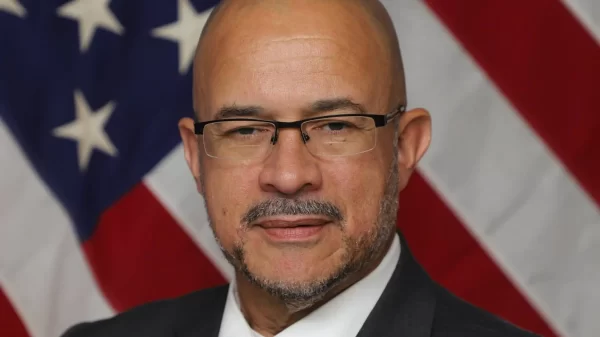By Brandon Moseley
Alabama Political Reporter
BIRMINGHAM—Alabama Republican Party Chairman Bill Armistead has repeated his call for Alabama to have closed party primaries.
Chairman Armistead wrote to Republican faithfuls, “When I ran for Chairman of the Alabama Republican Party I vowed to seek ways to ensure that Republicans voted to select their candidates in the Republican primary and Democrats voted to select theirs in the Democrat primary. I appointed a committee in 2011 to look into how other states have successfully handled party primaries, in order to guide Alabama down the same path. The committee recommended that the Party support what is known as “closed primaries”, meaning that only Republicans vote in a Republican primary and only Democrats vote in a Democrat primary.”
Armistead continued, “At the 2013 Summer Meeting of the Alabama Republican Party State Executive Committee a resolution was passed endorsing closed primaries in Alabama and urging the legislature to take steps towards party registration.”
Alabama currently is one of 11 states with open primaries where voters do not have to declare affiliation to any party and can request whichever ballot they choose at the polls. An Independent or a Constitution Party or Libertarian Party supporter can legally vote in whichever major party primary they feel like voting in on election day.
Eleven states use a closed primary system, voters must declare an affiliation prior to the primary date and can only vote in their affiliated party’s primary, thus Democrats can not vote in the Republican Primary and vice versa. Declared Independents and third party voters could vote in either major party primary. A modification of that is the semi-closed primary which allows voters who have declared themselves independent to vote in either primary but would still prevent registered party members from vote in the other party’s primary.
The semi-closed primary has been adopted by 24 states as a way for citizens to show their loyalty while not disenfranchising undecided voters. Four states don’t have a party primary and all the candidates appear on one ballot. The two candidates with the most votes move on to the general election. This means that the final two candidates for an office could both be Republicans, both be Democrats or independents.
Republicans were fearful that since the Democrats had few serious primaries many Democrats would opt to vote in the Republican primary. In the writer’s polling place in Moody, AL the Democratic ballot consisted of the governor’s race between Bass and Griffith and not one other office.
Chairman Armistead said, “The efforts of these Democrats and the Alabama Education Association (AEA) were attempts to influence who won our primary. Their goal was simple according to Armistead was to elect candidates loyal to the AEA in the Republican primary or elect the “weakest candidate” as the Republican nominee to enhance the chance of electing a Democrat in November.”
Armistead makes this clam despite the fact that 60 percent of the AEA membership identify themselves as Republicans.
Given that Primary participation was extremely low for both parties there is very little evidence that education workers participated in high levels in elections across the State and less that normally Democratic Party loyalists voted in significant numbers to weaken the Republican nominee in the fall.
Chairman Armistead said, “Obviously, the legislature didn’t take action on the Party’s recommendation to close our primary. I strongly believe that a closed or semi-closed system would enable both the Republican and Democrat parties to have control of their nominating process without the influence of the opposing party. There is currently nothing preventing Democrats from cross voting in Alabama!”
Chairman Armistead said that in an AL.com article by Mike Cason on June 3, 2014, State Democrat Party Chairwoman Nancy Worley stated that she agrees with us that “party registration is important for the proper functioning of a primary”. Armistead continued, “The Alabama Republican Party will continue to promote the idea that Republicans should select Republican nominees and Democrats should select Democrat nominees. Until such time that we enact legislation in Alabama to have a closed or semi-closed primary, we will continue to see Democrats “meddling” in our Republican primary. It’s time to put a stop to that once and for all.”
While evidence of vast numbers of Democrats voting in this year’s Republican Primary is spotty (at best), many political observers credit Democrats voting in the 2010 Republican Primary with helping elevate then state Representative Robert Bentley (R) from Tuscaloosa into the Republican Primary runoff against then former state Senator Bradley Byrne (R) from Montrose.
Bentley beat businessman Tim James by a razor thin margin of just 208 votes to get in that runoff with Byrne whom he defeated in the July runoff. Of course Bentley then crushed his overmatched Democratic opponent, then Agriculture and Industries Commissioner Ron Sparks 58 percent to 42 percent. The only Democratic constituency to remain loyal to Sparks in November were Black Alabamians. The Republican Party swept every other office on that 2010 general election ballot and followed that up with a sweep on the 2012 general election ballot.





















































